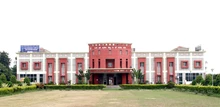
Women have been a key part of agriculture for centuries, playing important roles in various aspects of food production, from planting and harvesting to processing and selling. However, women have long been underrepresented in leadership positions in the agricultural sector.
This lack of representation has resulted in missed opportunities for women to contribute to the development of agriculture in their communities and for the sector to reach its full potential. In recent years, there has been a shift towards women-led development in agriculture, recognizing the critical role that women play in ensuring food security and economic growth.
Women's contributions to agriculture are significant, yet they often face challenges in accessing resources and opportunities to advance their careers. Women often have limited access to education and training programs, financing, land, and technology. These factors limit their potential to innovate and lead within the agricultural sector. When women are empowered and given the tools to lead, they bring new perspectives, creativity, and sustainable practices to the sector.
Women-led development in agriculture recognizes the importance of providing women with equal access to resources and opportunities to drive innovation, improve productivity, and build sustainable food systems. This approach aims to create a more inclusive and equitable agricultural sector by promoting women's leadership and decision-making in all areas of the value chain. When women are involved in decision-making processes, they are better equipped to identify and address the unique challenges faced by female farmers, such as limited access to land, financing, and technology.
One example of women-led development in agriculture is the African Women in Agricultural Research and Development (AWARD) program. This program is dedicated to strengthening the leadership capacity of African women in agricultural science, technology, and innovation. AWARD provides professional development opportunities, mentoring, and networking opportunities to help women advance their careers and make meaningful contributions to the sector. Since its inception in 2008, the program has trained over 1,000 women from 16 African countries.
Another example is the International Food Policy Research Institute's (IFPRI) Women's Empowerment in Agriculture Index (WEAI). The WEAI assesses women's empowerment in agriculture across five domains: production, resources, income, leadership, and time usage. By measuring women's empowerment in these areas, the WEAI helps policymakers and development practitioners identify where interventions are needed to support women's leadership and development in agriculture.
Women-led development in agriculture is not only important for promoting gender equality but also for building more resilient and sustainable food systems. Women's leadership and involvement in agriculture can lead to more efficient and effective use of resources, greater adoption of sustainable farming practices, and improved nutrition outcomes. In addition, empowering women in agriculture can contribute to poverty reduction and economic growth by providing opportunities for women to generate income and participate in economic activities.
In conclusion, women-led development in agriculture is crucial for achieving inclusive and sustainable food systems. By empowering women to lead and innovate in the sector, we can create a more equitable and resilient agricultural sector that benefits everyone. Governments, development organizations, and the private sector must work together to provide women with equal access to resources and opportunities to drive innovation, improve productivity, and build sustainable food systems. Only then can we realize the full potential of agriculture and ensure food security for all.












